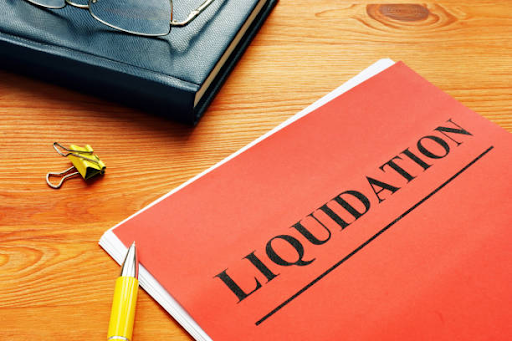Compulsory liquidation, often referred to as winding up, is a legal process through which a company’s assets are sold to pay off its debts when it becomes insolvent and is unable to meet its financial obligations. This process is initiated by creditors, shareholders, or regulatory authorities and is governed by strict legal procedures. In this blog, we will delve into the key aspects of compulsory liquidation, including the reasons for its initiation, the process involved, and the crucial role of directors during insolvency.
The Initiation of Compulsory Liquidation
Wondering “What is Compulsory Liquidation?” It typically occurs when a company is unable to pay its debts as they fall due. This state of insolvency may be recognized by the company’s inability to meet its financial obligations, mounting arrears, or when it is simply unable to sustain its operations. The process can be initiated through several means:
- Creditor’s Petition:
The most common trigger for compulsory liquidation is a creditor’s petition. A creditor who is owed a debt of £750 or more can apply to the court for an order to liquidate the company. This is often seen as a last resort when all other attempts to recover the debt have failed.
- Shareholder’s Resolution:
In some cases, the company’s shareholders may pass a special resolution for winding up if they believe it is in the best interest of the company.
- Regulatory Authority Intervention:
Regulatory authorities, such as the Financial Conduct Authority (FCA) or the Insolvency Service, may also initiate compulsory liquidation if they believe the company is acting against the public interest or in violation of regulations.
The Process of Compulsory Liquidation
Once compulsory liquidation is initiated, the process follows a set of defined steps:
- Petition for Winding Up:
The process begins with the filing of a winding-up petition in court, either by a creditor, shareholder, or regulatory authority.
- Court Hearing:
The court examines the petition and, if satisfied, issues a winding-up order. The company is then officially in liquidation.
- Appointment of a Liquidator:
A licensed insolvency practitioner is appointed as the liquidator. Their role is to take control of the company’s assets, investigate its financial affairs, and distribute the proceeds to creditors in accordance with the law.
- Realization of Assets:
The liquidator gathers and sells the company’s assets, including property, equipment, and inventory, to generate funds for repaying creditors.
- Debt Repayment:
The funds obtained from the sale of assets are used to pay off the company’s debts, with secured creditors having priority.
- Distribution to Shareholders:
If any funds remain after paying off all debts and expenses, they are distributed among the company’s shareholders according to their respective shareholdings.
Directors’ Duties in Insolvency
Directors have important legal responsibilities during the insolvency process, and failure to fulfill these duties can result in personal liability. Here are some key directors duties in insolvency:
- Duty to Act in the Best Interests of Creditors:
Once a company is insolvent, directors must prioritize the interests of creditors over those of shareholders. They should work to maximize the recovery of assets for the benefit of creditors.
- Duty to Avoid Wrongful Trading:
Directors must not allow the company to continue trading if there is no reasonable prospect of avoiding further losses to creditors. If they do, they may become personally liable for the company’s debts incurred during this period.
- Duty to Cooperate with the Liquidator:
Directors must provide the liquidator with all necessary information and cooperation to facilitate the liquidation process. Failure to do so can lead to legal action.
- Avoidance of Preferential Payments:
Directors must refrain from making preferential payments to certain creditors before the initiation of insolvency proceedings. Such payments can be voided by the liquidator.
- Avoidance of Misconduct:
Directors must avoid any fraudulent or wrongful conduct that harms creditors or the company. Engaging in such conduct can result in disqualification as a director or legal action.
Conclusion
I hope we have answered your question “What is Compulsory Liquidation?” It is a legal process initiated when a company is unable to meet its financial obligations. It involves a series of steps, including the appointment of a liquidator, the sale of assets, and the repayment of debts to creditors. Directors Duties in Insolvency play a critical role in this process, with specific duties to ensure transparency, fairness, and compliance with the law. Understanding these responsibilities is crucial for directors to navigate insolvency successfully and avoid personal liability.
